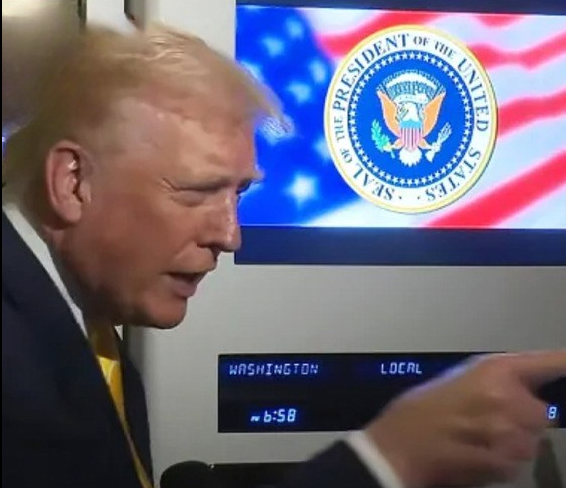On the windy afternoon of November 14, 2025, the usual roar of jet engines on the presidential tarmac could not drown out a tense and widely reported confrontation between President Donald Trump and the press. As the President prepared to board Air Force One, a routine media gaggle quickly turned hostile, sparking renewed debates about presidential behavior, press freedom, and the lingering controversies around Jeffrey Epstein.
The incident began as reporters asked questions about newly released emails connected to Epstein. A Bloomberg journalist asked whether the emails contained any information about Trump’s past ties to the disgraced financier. In response, the President stopped, turned, and addressed the journalist directly. Witnesses said he snapped a sharp command: “Quiet,” then added a derogatory remark, “Quiet, piggy.”
The insult shocked those present. Observers noted that Trump has a history of using demeaning language toward women who question him, and in this instance, the term reduced the journalist to a personal attack rather than engaging with the question. The timing—amid renewed Epstein-related revelations—made the remark particularly controversial.
The emails in question, released by House Democrats, included correspondence between Jeffrey Epstein and Ghislaine Maxwell, his longtime associate. One email mentioned Trump, stating he had “never been named” by any victims. While this may seem favorable to the former President, it also reignited speculation about whether Epstein and Maxwell used Trump’s Mar-a-Lago property to recruit young women, creating a politically sensitive association.
After the outburst, Trump’s communications team defended him, denying any wrongdoing and insisting his relationship with Epstein had been superficial and ended years before Epstein’s crimes became widely known. He dismissed the email release as a partisan attack.
Observers suggest the tarmac incident reveals how deeply the Epstein case still affects Trump. By attacking the journalist, he may have tried to regain control and silence uncomfortable questions, but the effect was the opposite: the “piggy” remark went viral, drawing attention both to the insult and to the underlying Epstein documents.
The episode has also sparked broader discussions about misogyny in politics. By reducing a professional journalist to a personal insult, the President shifted focus away from serious allegations and toward his behavior. Critics argue this tactic undermines accountability, discouraging reporters from asking difficult questions for fear of public humiliation.
As the fallout continues, questions about the Epstein emails remain. The documents are likely the start of a slow release of information that could affect anyone connected to Epstein. Meanwhile, the image of the President on the tarmac, pointing and using a slur at a journalist, may stand as a defining moment of this political era—a moment where the tension between power and accountability erupted into something personal and deeply troubling.
